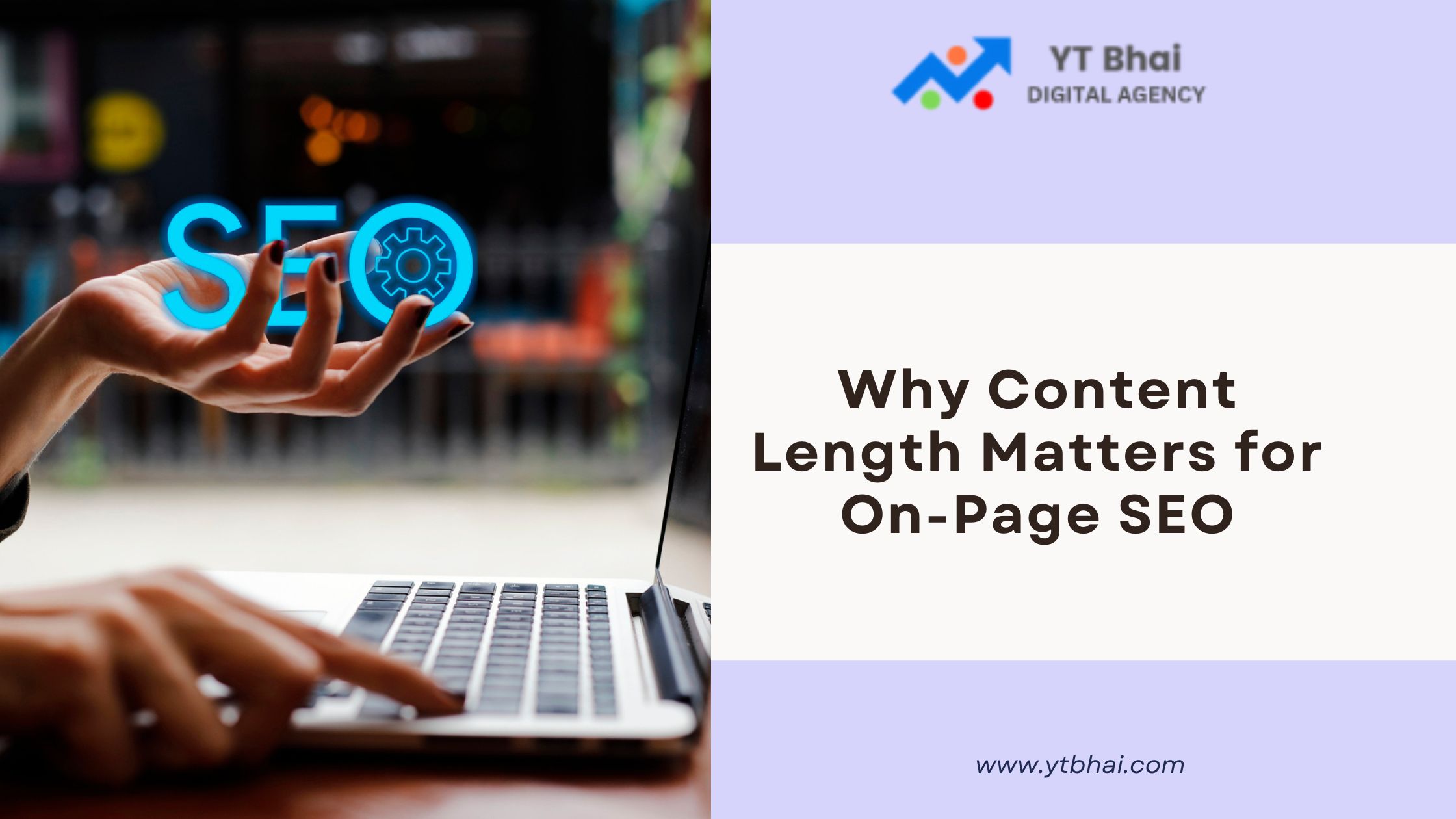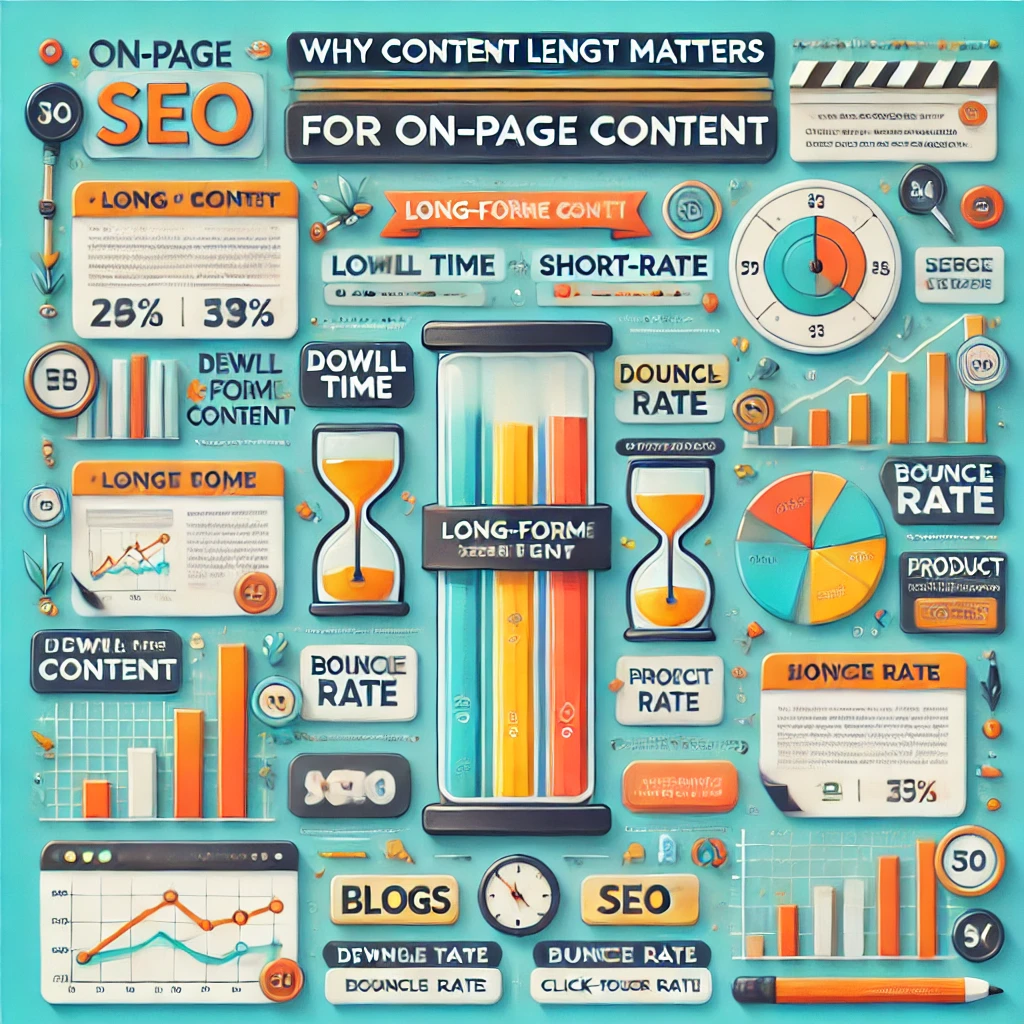
Content length has become a hot topic in the world of SEO. With search engines continuously evolving to deliver better user experiences, understanding how content length influences rankings is essential for digital marketers and content creators. But does longer always mean better? Let’s explore the connection between content length and on-page SEO to uncover best practices.
What is Content Length in SEO?
Content length refers to the total word count of a page’s content. While this might seem like a simple metric, it significantly impacts how search engines and users perceive the value of a webpage. Longer content often allows for deeper exploration of a topic, which can improve relevance and authority in the eyes of both readers and algorithms.
Content Length and User Engagement
Longer content tends to engage users more effectively because it:
- Provides comprehensive information: Users prefer detailed content that answers their queries thoroughly.
- Keeps readers on the page longer: This boosts metrics like dwell time, which search engines consider when ranking pages.
Example:
A study by Backlinko analyzed over 11 million Google search results and found that the average word count of top-ranking content is around 1,447 words. This highlights the value of longer content for engagement and ranking.
Content Length vs. Content Quality
While content length matters, quality is equally important. Simply stretching an article to meet a word count can dilute its value. For instance:
- High-quality content: Offers unique insights, actionable tips, and credible references.
- Low-quality content: May rely on fluff, redundancy, or keyword stuffing, which could harm rankings.
Balancing length with quality ensures your content resonates with readers and search engines alike.
Search Engine Preferences for Content Length
Search engines like Google prioritize content that meets user intent. Several studies have shown correlations between content length and rankings:
- Blog posts and guides: Perform better when they exceed 1,000 words, offering in-depth answers.
- Product descriptions: Can rank well with concise, targeted content (100-300 words) if optimized properly.
Data Insights:
| Content Type | Ideal Word Count | Why It Works |
|---|---|---|
| Blog Posts | 1,200–2,000 words | Comprehensive, covers multiple aspects of a topic. |
| Tutorials and Guides | 2,000+ words | In-depth exploration, step-by-step instructions. |
| Product Descriptions | 100–300 words | Clear, concise, and focuses on benefits/features. |
| News Articles | 500–800 words | Quick, relevant updates that match user intent. |
Impact of Content Length on User Metrics
Content length directly influences user engagement metrics, such as:
- Dwell Time: Longer content keeps readers on the page.
- Bounce Rate: In-depth content reduces the likelihood of users leaving quickly.
- CTR (Click-Through Rate): Detailed meta descriptions entice users to click.
Example:
An e-commerce site increased dwell time by 30% after updating product descriptions to include longer, more informative content.
When Longer Content is Necessary
Longer content excels in situations where detailed information is critical. Examples include:
- How-to guides: Users expect step-by-step instructions.
- Ultimate resource posts: Comprehensive lists and comparisons.
- Case studies and whitepapers: Require detailed analysis and context.
When Shorter Content Works Better
Shorter content can outperform long-form content when:
- The user’s query requires a quick answer.
- The content is time-sensitive, such as breaking news.
- Space is limited, like in product descriptions or FAQ sections.
Tips to Optimize Content Length for SEO
- Know Your Audience: Tailor content length to user intent and preferences.
- Focus on Quality: Prioritize actionable insights over fluff.
- Use Analytics: Track metrics like time on page and bounce rate to refine your approach.
- Structure Wisely: Use headings, subheadings, and bullet points for readability.
- Repurpose Content: Break longer pieces into digestible sections for different platforms.
Case Study: The Role of Content Length in a Successful SEO Campaign
A marketing agency revamped their client’s blog strategy by increasing the average word count of posts from 800 to 1,500 words. The result?
- Organic traffic grew by 45% within six months.
- Average time on page increased by 60%.
This case study underscores the impact of balancing content length and quality for SEO success.
Conclusion
Content length matters for on-page SEO, but it’s not the sole determinant of success. Striking a balance between length, quality, and user intent is key. By understanding when and how to use long-form or short-form content, you can boost your rankings, engage readers, and achieve your SEO goals.
FAQs
- What is the ideal content length for blog posts?
The ideal length is typically 1,200–2,000 words, depending on the topic and audience intent. - Does longer content always rank higher?
No, longer content ranks higher only if it provides value and aligns with user intent. - Can short content rank well?
Yes, if it effectively answers user queries and is optimized for search engines. - How does content length impact user metrics?
Longer content improves dwell time, reduces bounce rates, and increases engagement. -
Should I prioritize length over quality?
No, quality is always more important. Aim for meaningful, valuable content regardless of length.

